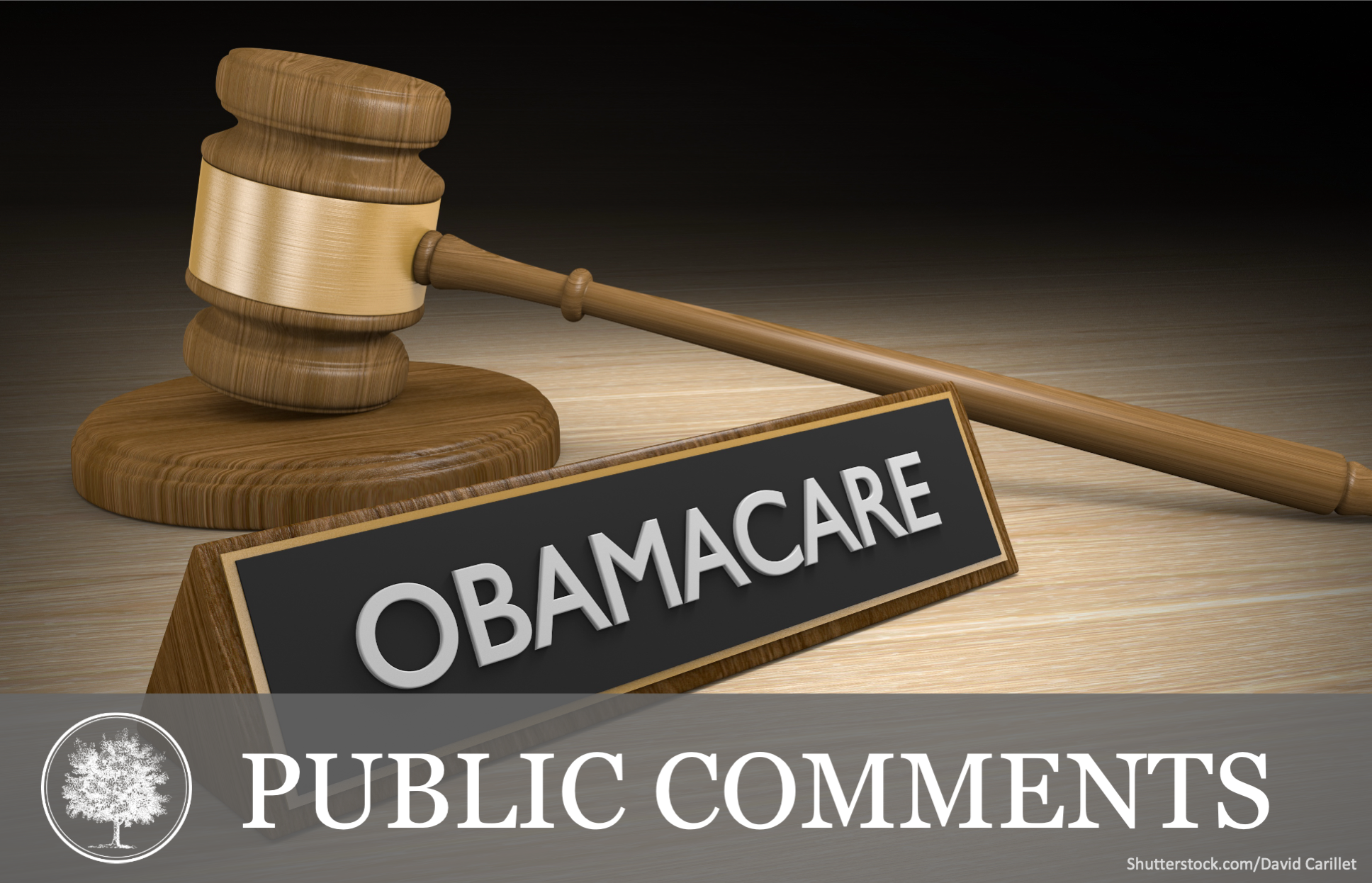Testimony & Public Comments
The Buckeye Institute Offers Commonsense Recommendations to Improve Ohio’s Medicaid Waiver Application
April 08, 2025

The Buckeye Institute filed public comments with the Centers for Medicare and Medicaid Services supporting Ohio’s 1115 Medicaid Work and Community Engagement Waiver application that, if approved, will allow the state to implement work and education requirements for healthy adult Ohioans younger than 55 who receive Medicaid benefits. “Medicaid work and education requirements, which only apply to healthy working-age adults, help people stay connected to the workforce and find good paying jobs.”
The Buckeye Institute Testifies on Ohio House Version of Budget Bill
April 03, 2025

The Buckeye Institute testified before the Ohio House Finance Committee on the policies in Ohio Substitute House Bill 96—Ohio’s biennial budget. In the testimony, The Buckeye Institute noted that the House version of the state budget “offers a mixed bag of belt-tightening, policy improvements, and missed opportunities...” House Bill 96, unfortunately, “fails to address tax expenditures or close tax loopholes…and adds a series of new earmarks.”
The Buckeye Institute: Policies in HB5 Offer Commonsense Criminal Justice Reforms
April 02, 2025

The Buckeye Institute testified before the Ohio House Judiciary Committee on the policies in Ohio House Bill 5, which takes another step to “balance due process, individual freedom, and the need for robust criminal law enforcement.” In the testimony, The Buckeye Institute applauded lawmakers for their “commitment to prudent, commonsense criminal justice policies and reforms,” many of which The Buckeye Institute championed.
The Buckeye Institute: SB127 Can Bring Greater Accountability to Ohio’s Public Schools
April 01, 2025

The Buckeye Institute testified before the Ohio Senate Education Committee on policies in Ohio Senate Bill 127, which, if adopted, would help turn around chronically underperforming public schools. “Ohio has tolerated mediocre performance in its lowest-scoring public schools for far too long,” and Senate Bill 127 uses “data-driven benchmark for standardizing school closures and taking measurable actions to turn around failing schools.”
The Buckeye Institute: HB28 Lays Foundation for Broader Property Tax Reforms
March 19, 2025

The Buckeye Institute testified before the Ohio House Ways and Means Committee on the policies in Ohio House Bill 28, which, if adopted, will “lay a foundation” for further reforms, such as those championed by The Buckeye Institute. Buckeye’s commonsense recommendations would bring more transparency to how property taxes are spent and eliminate “layers of fragmented, redundant bureaucracy” that lead to higher property taxes for Ohioans.
The Buckeye Institute: Policies in SB1 Would Ensure Higher Education Accountability
March 19, 2025

The Buckeye Institute testified before the Ohio House Workforce and Higher Education Committee on policies in Ohio Senate Bill 1, which, if adopted, would improve higher education in Ohio by increasing accountability. In the testimony, The Buckeye Institute, praised America’s higher education system, pointing out that it “has long been the envy of the world” and noted that the policies in Senate Bill 1 could help address the systemic and cultural problems facing Ohio’s public universities.
In Testimony, The Buckeye Institute Supports Policies to Provide Affordable, Reliable Energy
March 18, 2025

The Buckeye Institute testified before the Ohio House Energy Committee on the policies in Ohio House Bill 15—many of which were recommended by The Buckeye Institute and American for Prosperity-Ohio in Better Energy Policy for Ohio. The policies, if adopted, would help ensure a healthy supply of affordable, reliable energy to meet the state’s rising consumer demands. In the testimony, Buckeye noted that House Bill 15 is “the most free-market piece of energy legislation since the deregulation efforts in the late 1990s.”
The Buckeye Institute Testifies on Ohio’s Biennial Budget
March 13, 2025

The Buckeye Institute testified before the Ohio House Finance Committee on the policies in Ohio House Bill 96—Ohio’s biennial budget. In his testimony, Greg R. Lawson, a research fellow at The Buckeye Institute, highlighted four areas—Medicaid, primary and secondary education, higher education, and taxes—and urged lawmakers to ensure the “state’s long-term fiscal health” and to “retain pro-growth tax policies.”
The Buckeye Institute Testifies in Support of Ohio’s Medicaid Waiver
March 11, 2025

The Buckeye Institute submitted written testimony to the Ohio Senate Medicaid Committee in support of Ohio’s proposed Medicaid waiver, which enhances the program’s integrity and promotes economic stability, financial independence, and improved health outcomes. “For almost 50 years, the government expected healthy adults to be in the labor force working or looking for work.”
In Testimony, The Buckeye Institute Applauds Ohio’s K-12 Student-First Budget
March 05, 2025

The Buckeye Institute testified before the Ohio House Education Committee on the K-12 budget in Ohio House Bill 96—Ohio’s biennial budget. In his testimony, Greg R. Lawson, a research fellow at The Buckeye Institute, noted that “putting students first means funding students rather than systems” and praised this budget for doing just that.
